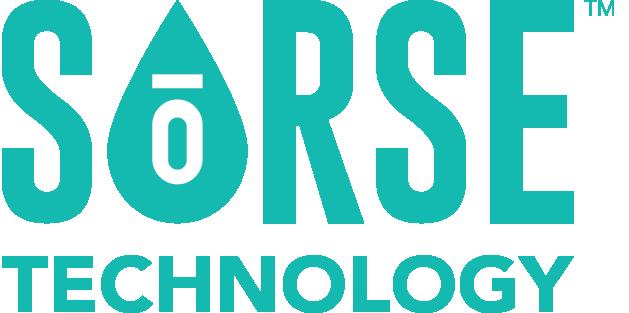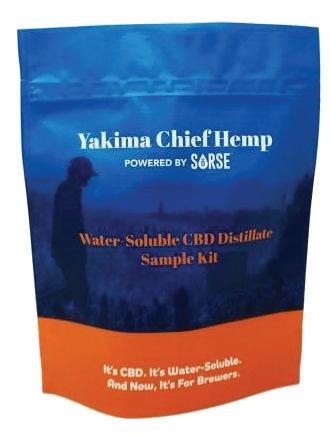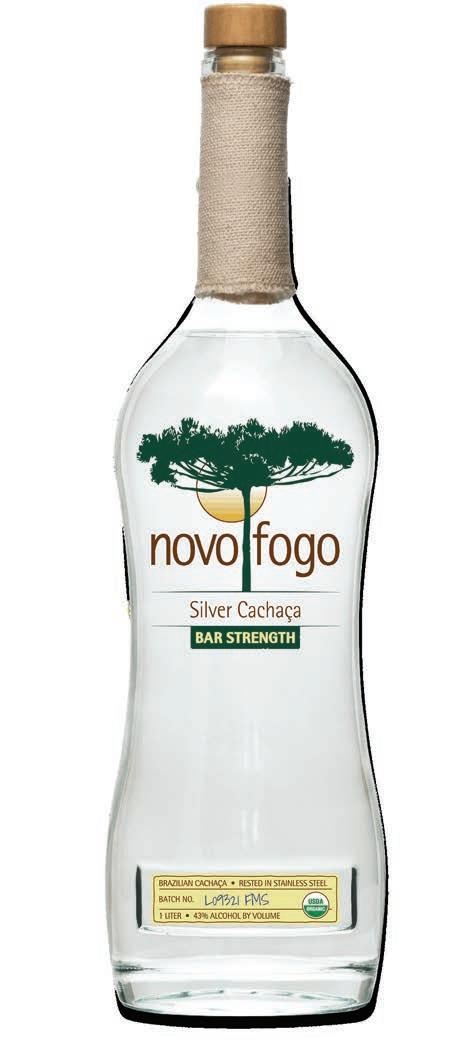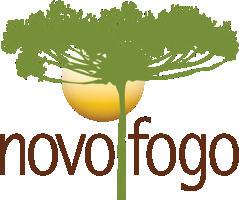
8 minute read
THE SCIENCE OF SPIRITS
DRINKING TRADITIONS FAIL AS SCIENCE UNCOVERS THE TRUTH
Spirits’ evaluation methods are inadequate for sensory progress
By George F Manska, CR&D, Arsilica, Inc.
Spirits’ evaluation methods and procedures evolved directly from the 1960s scotch whisky marketing drive supplemented by a few borrowed from wine critics; all derived using traditional tulip-style tasting glasses. Early on, eager to adopt an iconic symbol, industry VIPs, brand ambassadors, distillers, writers, critics, and whisky drinkers never seriously considered other vessel shapes.
Complacency with traditional tulips will continue for most social drinkers. However, embracing sensory, chemistry, and physical sciences provides opportunities to raise the industry quality bar and provide much-improved guidance to distributors and consumers who have a critical reliance on accurate evaluations to disseminate prolific purchasing choices.
Since 2002 the corporate mission of Arsilica, Inc. has been to provide truth in sensory evaluation. The future of the spirits industry ultimately rests with consumer flavor perceptions and our research continues to define the technology necessary to deliver true flavor profiles to consumers. Three major discoveries reveal the pitfalls of blind acceptance of tradition:
1. Concentrated ethanol destroys sense of smell:
Anesthetic ethanol quickly numbs olfactory receptors, preventing identification of character aromas. After three 3-second ethanol inhale/ exhales through the nostrils, 92% of experienced evaluators cannot correctly identify 3 of 4 samples (bourbon, scotch, cognac, rum) in black (to eliminate visual clues) tulips. Tulips’ tiny rims force highly concentrated, nose-numbing ethanol (95+%) into the nostrils resulting in rapid ethanol anesthesia. High olfactory ethanol levels destroy the sense of smell and contaminate evaluation objectivity. Tumblers are far superior to tulips due to lower ethanol concentration.
Ethanol anesthesia was first identified in tulips decades ago by scotch whisky blenders. Choosing tulip glasses, they dilute to 20-23% ABV (1 oz water to 1 oz spirit) – thus avoiding nose-numbing yet radically altering aroma profile. Many brand ambassadors invoke the fallacy of adding a few drops of water to “open up” a spirit, but the opposite occurs, as water reduces ethanol pungency but also shuts down all aromas. Other methods acclimate the nose to pungency but fail to improve anesthesia onset from tulips, including breathing through mouth and nose simultaneously, and wafting. Nothing short of diverting ethanol will mitigate ethanol anesthesia.
2. The “mind-trick” of experiential memory:
Ethanol anesthesia occurs without warning or awareness. The earliest sign: The evaluator asks, “What do I smell?” or “It’s familiar but I can’t identify,” or worse, “I can’t smell anything,” then ponders, “what should I smell?” A catalog of past tastings
(experiential memory) quickly arises to supply the “familiar aromas” checklist. The anesthetized evaluator mentally reviews the list and prompted, completes the evaluation. However, results are unwittingly based on personal past experiences, not the evaluation sample. Distributors and consumers who depend on accurate evaluations for purchasing are misled because nose-numbing ethanol effects were ignored. The result is unfair to distillers, distributors, and consumers.
3.Gender equity is key:
By peer pressure or decree most male-dominated social drinking clubs have institutionalized the iconic tulip glass. Our extensive testing and hundreds of interviews reveal that one-on-one, 87% of males prefer wide-rim glass aroma profiles to tulips, yet publicly a disproportionately high percentage (90+%) choose tulips - peer pressure in its highest form. Females (98%) prefer wide-rim aroma profiles and exhibit animated, vocal reactions to high ethanol. Biologically, women have 43% more olfactory receptors than males, and augmented by maternal instinct are driven to vigilance and caution when ingesting unfamiliar, unpleasant, disagreeable, or pungent substances to protect the body that nurtures the child. A common vocal reason for avoiding club membership is the pressure to accept sharp, pungent aroma characteristic of the club tulip. Thus, dedicated, well-meaning social drinking fraternities inadvertently discourage female participation and their superior olfactory capabilities, diversity, and gender equity. Many women in the spirits industry have adapted their tasting methodology for tulips to avoid ortho-nasal contact with ethanol rather than force gender equity issues. Those who have no aversion to ethanol are few.
Science eventually wins, solving problems created by tradition and myth while simultaneously carving out room for progress and knowledge. Spirits industry professionals have both responsibility and opportunity to raise the quality bar, promote gender equity and inclusion, provide meaningful distributor training, teach truth through applied science. Building spirits sensory methodology around a vessel which inhibits sensory by concentrating ethanol was a fatal mistake, and the well-entrenched tulip glass can no longer be considered the diagnostic tool of choice as applying science to replace tradition with truth is a far nobler and relevant objective.
References:
Science — Neat Glass (theneatglass.com): https://www.theneatglass. com/neatscience-technology-evaporation
Beverages | Free Full-Text | Technical Report—Applying Physics and Sensory Sciences to Spirits Nosing Vessel Design to Improve Evaluation Diagnostics and Drinking Enjoyment (mdpi.com): https://d.docs.live.net/c3792b8bc0e2a608/Documents/Beverages | Free Full-Text | Technical Report—Applying Physics and Sensory Sciences to Spirits Nosing Vessel Design to Improve Evaluation Diagnostics and Drinking Enjoyment (mdpi.com)
https://sensationresearch.com/wp-content/uploads/2020/01/GlassVessel-Aroma-DA-Study-Sept-2019.pdf

George F Manska
Chief of Research and Development, Arsilica, Inc., engineer, inventor of the NEAT glass, and sensory science researcher.
Mission: Replace misinformation with scientific truth through consumer education.
Contact Information:
Phone: 702.332.7305 Email: george@arsilica.com Business mailing address: 452 Silverado Ranch Blvd, Ste #222, Las Vegas, NV, 89183.

SōRSE Technology Enters Brewing Industry with New Product Offering Made in Partnership with Yakima Chief Hops
their hemp with the same quality best practices and consistency as their hops, due in part to the similarities between hops and hemp plants. Using its patent-pending technology, SōRSE Technology has converted the distillate into a water-soluble 3% emulsion for seamless integration into functional beverages for the growing Beyond Beer sector. Yakima Chief Hemp’s Water-Soluble CBD Distillate is classified as broad spectrum and contains an array of
• SōRSE Technology enters the
brewing industry with Yakima
Chief Hemp, a sub-entity of
Yakima Chief Hops.
• New Water-Soluble CBD Dis-
tillate by Yakima Chief Hemp
Powered by SōRSE is available for purchase.
solution directly into the brewing process. The CBD solution offers accurate dosing, a refreshing and enjoyable taste—and it’s available at scale. Water-Soluble CBD Distillate is available for product evaluation and purchase through Yakima Chief Hemp. As the Beyond Beer category grows and hemp continues to gain interest, SōRSE and Yakima Chief Hemp are now able to bring hemp from their fields to brewers in a format that makes building out a scalable beverage portfolio quick and easy.

About Yakima Chief Hemp
Contact Yakima Chief Hemp today at hemp@yakimachief.com to order your water-soluble CBD distillate. For early adopters interested in learning more about SōRSE brewery product lines, contact SōRSE for pre-release offerings before more products launch at the Craft Brewers Conference in September.
SōRSE Technology, the leading water-soluble emulsion provider for infused CPG brands, in partnership with Yakima Chief Hops, the leading 100% grower-owned hop supplier, announces its newest product offering for brewers, WaterSoluble CBD Distillate. With more than six generations of commercial farming knowledge, the Yakima Chief Hemp growers cultivate minor cannabinoids, terpenes, and essential oils, which contributes to the product’s superior flavor profile. The new product offering allows brewers to expand their product line with CBD-ehanced beverages utilizing a one-step, “drop and go”
About SōRSE Technology
Follow SōRSE to stay up to date with product announcements and event details at www.sorsetech.com.


NEW BAR STRENGTH SILVER CACHAÇA, DESIGNED FOR THE TRADE INDUSTRY
The First-Ever Carbon-Neutral Distilled Spirit From True Origin to Final Destination

Novo Fogo Cachaça, an environmentallyminded, award-winning Brazilian cachaça handcrafted in small batches at the company’s carbon-negative, zerowaste distillery, introduces a new, highproof silver cachaça in a 1-liter bottle format designed for the bar community. Through Novo Fogo’s offsets provider partner, Native, the company’s carbon offset purchases financially support a project that provides water filters for 2,000 coffee-growing families in Honduras, eliminating their need to cut and burn trees for boiling water. Novo Fogo contributes $3 per case of all of all its bottle sales to the brand’s UnEndangered Forest project, a program that works to remove 36 species of native Brazilian trees from the threatened list. Each bottle is made from recycled glass and the neck wrap is repurposed from plastic collected from the streets of São Paulo, Brazil. The higher-proof expression presents at 43% ABV in the bottle, after resting in chemically-inert stainless steel tanks for one year. The resulting effect of
intensified tropical fruit flavors takes the leading role in a broad range of cocktails, from sours to tiki drinks and twists on classics.

Tasting notes:
Banana, lime blossoms, passion fruit, sweet red peppers, sea salt, green grass.
Design features:
The bottle redesign features a smaller, circular footprint, a taller neck and a slimmer midsection that fits ideally in the well and is easier to handle throughout busy shifts.
Economic features:
• 43% ABV + 1 liter volume = 22 drinks per bottle (1.5 oz. drink) • Average account cost per bottle = $24 • Cost per ounce = $0.71 • Cost per cocktail = $1.06
“We designed this product with bartenders in mind, as they value efficiency, knowledge, and leadership,” The new Silver 1-liter bottle offers the ergonomics and economics to become a bartender’s favorite, while also serving as a flagbearer of cleaner business practices in our industry.” Dragos Axinte CEO of Novo Fogo Cachaça.
For more information about Bar Strength, visit https:// www.novofogo.com/ bar-strength-cachaca/, and to learn more about Novo Fogo’s full line of products, visit www.novofogo.com.











